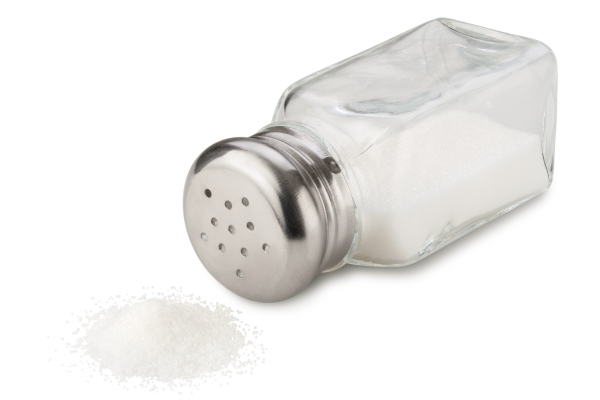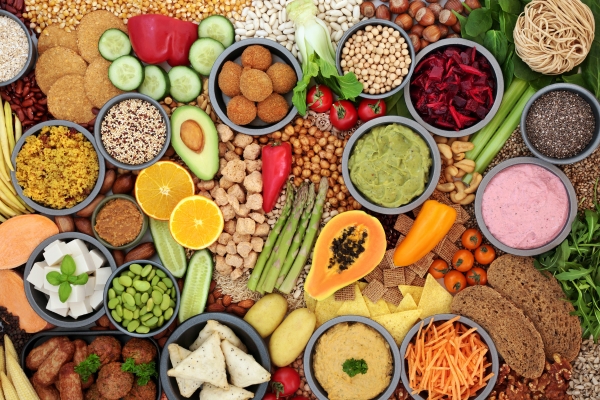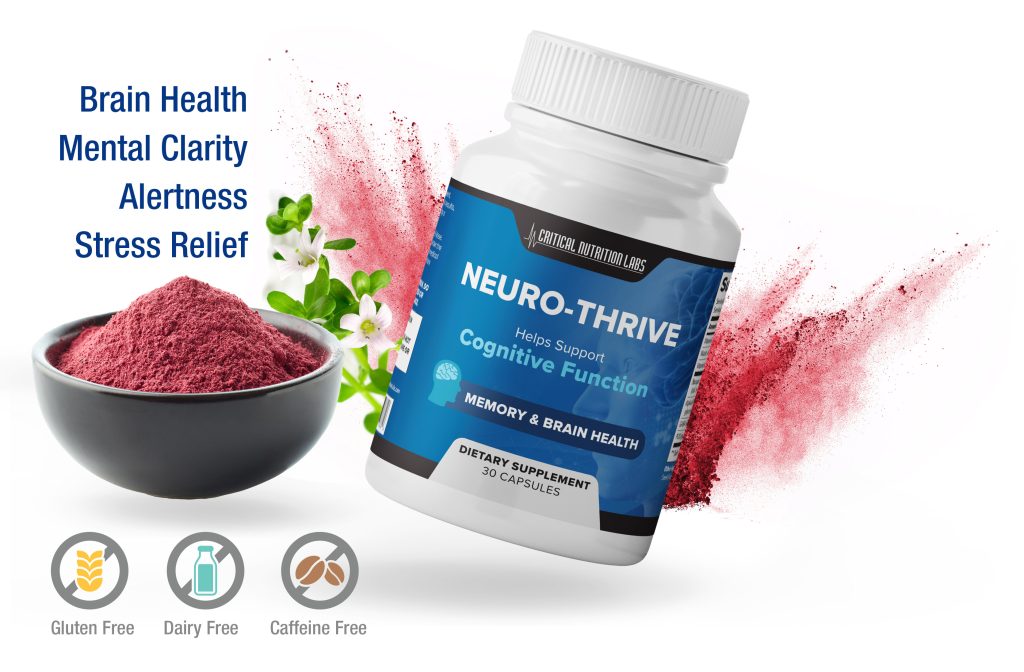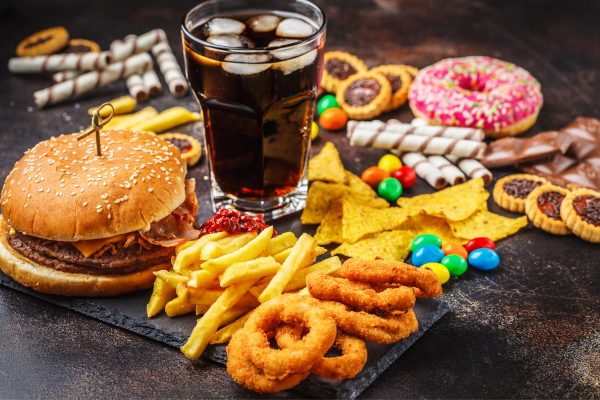Imagine this: almost 7 million people in the U.S. over 65 years old have Alzheimer’s disease.
That’s a huge number, and it really shows us how important it is to keep our brains healthy as we get older.
Our memory and ability to think clearly are super important for everything we do in life, from learning new things to simply enjoying conversations with friends.
But sometimes, in our busy lives, we end up eating foods that are more convenient than healthy.
Without realizing it, these choices can start to mess with our brain power.
The food we eat does more than just fill our stomachs; it plays a big role in how our brains work, including how well we can remember things.
Some foods are like building blocks for our brains, helping them to grow and work properly.
However, other foods can actually hurt our brains, affecting everything from our memory to how quickly we can think on our feet.
That’s why it’s super important to know which foods might be secretly causing trouble.
We’re going to take a look at the seven worst foods for your memory.
And we’re not just talking about hearsay.
These foods have been proven by science to be bad news for your brain.
Our goal is to help you spot these foods so you can make better choices, keeping your memory sharp and your brain as healthy as possible.

1. Sugary Drinks
When you reach for a soda, energy drink, or even a sweetened iced tea, you might enjoy the immediate burst of sweetness, but your brain might not be as thrilled.
Consuming high amounts of sugar, especially from sugary drinks, can have a significant negative impact on your brain health, including your memory.
Our brains use glucose, a type of sugar, for energy, but too much sugar can lead to problems.
Excessive sugar intake can cause a spike in blood glucose levels, leading to inflammation and oxidative stress.
Over time, these conditions can damage brain cells and affect the brain’s ability to communicate effectively.
Specifically, high sugar levels can impair the brain’s synaptic activity, which is how brain cells communicate with each other. And this is crucial for learning and memory.
What Does Science Say About Sugary Drinks and Memory?
Research has shown a troubling link between the consumption of sugary drinks and cognitive decline.
One study found that people who drank the most sugary drinks had a much higher chance of developing dementia, Alzheimer’s disease, and having strokes compared to people who didn’t drink sugary beverages at all. [1]
Another systematic review and meta-analysis discovered that research over time has shown that eating or drinking too much added sugar, especially from sugary drinks, can lead to problems with memory, trouble thinking clearly, and a greater risk of brain health issues. [2]
What Can You Do?
Knowing the impact sugary drinks have on your brain, you might be wondering how you can protect your health and still enjoy what you drink.
Here are a few steps you can take:
Switch to Healthier Alternatives: Instead of reaching for a soda or sweetened iced tea, try flavored water with a splash of fruit juice, herbal teas, or even sparkling water with a slice of lemon or lime. These alternatives can satisfy your craving for something sweet without the added sugar.
Read Labels Carefully: Many drinks marketed as “healthy” or “natural” can still be loaded with sugars. Always check the nutrition facts label to see the sugar content and make informed choices.
Reduce Gradually: If you’re used to having sugary drinks regularly, cutting them out suddenly can be challenging. Try reducing your intake gradually. For instance, if you drink sugary beverages daily, start by replacing one of those drinks with a sugar-free option each day.

2. Highly Processed Foods
Highly processed foods are products that have been significantly altered from their original form through various manufacturing processes.
These foods often contain added ingredients such as sugar, salt, fats, and artificial preservatives to enhance flavor, extend shelf life, or improve texture.
Common examples include fast food, packaged snacks, ready-to-eat meals, and sugary cereals.
Characteristics that typify highly processed foods are their high calorie content, lack of essential nutrients, and abundance of artificial additives.
Impact on Cognitive Health
New research is highlighting a worrying link between eating a lot of junk food and experiencing a decline in brain health.
Studies published in well-known scientific magazines have shown that diets full of junk food are connected to not thinking as clearly or remembering as well as we should.
One significant study pointed out that people who eat lots of junk food tend to show weaker brain function than those who stick to more natural, unprocessed foods.
The reason behind this decline in brain health seems to be due to several issues tied to junk food, such as increased inflammation, damage caused by oxidative stress, and problems with the way our guts communicate with our brains.
Junk foods are often packed with too much sugar, bad fats, and salt, which can lead to health problems like obesity, high blood pressure, and diabetes.
These health issues are known to make it more likely for someone to experience a decline in brain health and even develop dementia.
Moreover, because these processed foods don’t have enough of the essential nutrients like vitamins, minerals, and antioxidants, the brain doesn’t get what it needs to stay in top shape. [3] [4]
What Can You Do?
Understanding the impact of highly processed foods on our brain health, it’s essential to consider how we can make better dietary choices. Here’s how you can start making a change:
Prioritize Whole Foods: Focus on eating foods that are as close to their natural state as possible. Fresh fruits and vegetables, whole grains, lean proteins, and nuts are excellent sources of the nutrients your brain needs to function correctly.
Read Ingredients Lists: Get into the habit of reading the labels on food packaging. Look out for long lists of ingredients, especially those that are hard to pronounce or sound like chemicals. These are usually signs that the food is highly processed.
Keep Yourself Hydrated: That hunger you’re feeling might just be your body asking for water. Drinking water throughout the day can help curb the temptation to snack on processed foods.

3. Trans Fats
Trans fats are a type of unsaturated fat that occur in small amounts in nature but are mainly produced industrially through hydrogenation, a process that turns liquid vegetable oils into solid fats.
This method extends the fats’ shelf life and stability, making them appealing for inclusion in a variety of food items.
Common sources of trans fats in the diet include margarine, shortening, packaged baked goods, some snack foods, fast foods, and fried foods.
Due to their harmful health effects, trans fats are being phased out of many products, but they can still be found in certain foods.
Impact on Memory and Brain Health
Research has consistently shown that trans fats have a detrimental effect on memory and brain health.
Studies have found that higher consumption of trans fats is linked to poorer memory performance in adults.
For instance, one study reported that young and middle-aged men who consumed higher levels of trans fats performed significantly worse on memory tests compared to those who consumed lower levels.
Trans fats can really mess with our brains in a few ways.
They can lead to oxidative stress and inflammation. This is bad news because it can harm brain cells and make it harder for us to think and remember things.
Trans fats also interfere with omega-3 fatty acids, which are important for keeping our brains healthy.
There’s also evidence that trans fats can make it harder for our bodies to use DHA, a really important omega-3 fat that our brains need to stay in good shape. This can lead to changes in the brain that make learning and remembering more difficult. [5] [6]
What Can You Do?
Knowing the negative effects trans fats can have on our brains, it’s wise to try to cut them out of our diets as much as possible. Here are some practical tips to help you minimize your intake of trans fats:
Read Nutrition Labels: Start by checking the labels on packaged foods. Look for “0 grams trans fat,” but be cautious; foods with less than 0.5 grams per serving can legally claim to have zero. Also, scan the ingredients list for “partially hydrogenated oils,” a major source of trans fats.
Choose Natural Fats: Opt for natural fats and oils, such as olive oil, coconut oil, or butter, in moderation. These can be healthier alternatives to margarine or shortening, which may contain trans fats.
Ask When Eating Out: When dining out, don’t hesitate to ask the staff about the fats used in cooking. Many restaurants have switched to trans fat-free oils, but it’s always good to check.

4. Artificial Sweeteners
Artificial sweeteners are those zero-calorie chemicals we use to make our food and drinks sweet without the extra calories.
They’re way sweeter than regular sugar, so we only need a tiny bit to get that sweet taste.
You’ll find them in lots of “diet” or “sugar-free” items like diet sodas, sugar-free gum, some baked treats, and ice cream.
They’re popular because they can help with losing weight, controlling blood sugar, and even preventing tooth decay, all while letting us enjoy sweet flavors.
But, even though they sound great, research has found that using too much of these sweeteners might not be so good for our memory or brain health, almost like eating too much sugar.
Evidence on Memory Impairments
While artificial sweeteners can be helpful for people with diabetes or those watching their calorie intake, new research is starting to show that using them a lot over time might not be so good for our brains.
Some studies suggest these sweeteners could mess with how our bodies handle sugar, which might lead to brain changes that affect our memory and thinking skills.
For example, experiments with animals found that too much aspartame, a common artificial sweetener, can cause oxidative stress and inflammation in the brain. These are problems that can lead to a decline in cognitive function.
Also, some human studies have found that people who drink a lot of diet sodas and other artificially sweetened drinks might have a higher risk of having a stroke or getting dementia, including Alzheimer’s Disease. This suggests that these drinks could be bad for brain health.
Another interesting point is how artificial sweeteners might affect the bacteria in our gut.
The connection between our gut and brain is important for our thinking skills and memory. Some early research indicates that artificial sweeteners might change the gut’s bacteria in ways that could harm our cognitive functions, although more studies are needed to understand this better. [7] [8]
What Can You Do?
If you’re concerned about the potential negative effects of artificial sweeteners on your brain health, here are some steps you can take to reduce your intake and possibly mitigate these risks:
Read Labels Carefully: Start by checking the labels on food and drinks. If you see ingredients like aspartame, sucralose, saccharin, or any other artificial sweeteners, consider how often you’re consuming these products.
Choose Natural Sweeteners: Opt for natural sweeteners like stevia, honey, or maple syrup in moderation. While they do contain calories, they’re less processed and might be a healthier choice for sweetening your food and drinks.
Cut Back Gradually: If you’re used to sweet tastes, suddenly cutting out all sweeteners can be tough. Try gradually reducing the amount of sweetener you use until your taste buds adjust to less sweet flavors.

5. High Sodium Foods
Sodium is a mineral we all need to help balance fluids in our body, keep our muscles working right, and make sure our nerves send signals properly.
But, eating too much salt, which is how we usually get sodium, can be bad for our health, including how well our brain works.
Most of us eat more salt than we should because it’s in a lot of processed and fast foods.
Eating too much salt can lead to problems with how our brain functions.
High Sodium Diets and Cognitive Decline
New research is starting to show a clear link between eating too much salt and having problems with brain functions as we get older.
For instance, a study in the “Neurobiology of Learning and Memory” journal found that mice who ate a lot of salt didn’t do as well in tests that measure memory, like finding their way through mazes. [9]
These mice also had less blood flow to important parts of the brain that help with memory and learning.
In people, studies are beginning to show similar concerns.
One systematic review found that eating less salt could actually make your thinking skills better over half a year. When they only looked at the really well-done studies, three out of four of them showed that eating more salt was linked to worse brain function. [10]
These findings suggest that cutting down on salt could be one way to help keep our minds sharp as we age.
What Can You Do?
With all the evidence pointing towards high sodium intake as a potential risk for cognitive decline, you might be wondering how you can cut back on salt without sacrificing flavor. Here are some tips to help you get started:
Cook at Home More Often: When you prepare your own meals, you have complete control over how much salt is added. Experiment with herbs, spices, and citrus to add flavor without relying on salt.
Choose Fresh or Frozen Over Canned: Fresh and frozen fruits and vegetables often have less sodium than their canned counterparts. If you do choose canned vegetables, look for “no salt added” versions or rinse them under water to wash away some of the sodium.
Stay Hydrated: Drinking plenty of water can help your body remove excess sodium through your urine.

6. Alcohol
Alcohol consumption has a complex relationship with brain health and memory.
While moderate alcohol use has sometimes been associated with certain health benefits, excessive drinking can lead to serious negative effects on the brain and cognitive functions, including memory.
Alcohol affects the brain’s neurotransmitters, altering mood, behavior, and cognitive processes.
Over time, heavy drinking can lead to neurodegeneration and shrinkage of brain tissues, particularly in regions critical for memory and cognitive function, such as the hippocampus.
Impact of Heavy Drinking on Memory
Drinking a lot of alcohol, which means eight or more drinks a week for women and fifteen or more for men, can really mess with your memory.
Research has found that people who drink heavily over a long time can have big problems with both remembering things short-term and long-term.
This kind of damage from alcohol is called alcohol-related brain damage (ARBD).
People with ARBD might find it hard to make new memories, have trouble remembering things, and in serious cases, might get Wernicke-Korsakoff syndrome.
This is a serious memory problem that happens because of a big lack of vitamin B1.
Studies show that drinking too much alcohol makes it hard for the brain to make new memories, especially in a part of the brain called the hippocampus. [11]
This not only makes it tough to learn new stuff but can also mess with spatial memory, which is how we remember where things are or how to get places.
What Can You Do?
If you’re concerned about alcohol’s impact on your memory and brain health, here are some steps you can take to mitigate those effects:
Moderate Your Drinking: Aim to stay within the recommended limits of alcohol consumption. That’s up to one drink a day for women and up to two drinks a day for men. Remember, these are upper limits, not targets.
Exercise Regularly: Regular physical activity can help to offset some of the negative effects of alcohol on the brain by improving brain function and encouraging the growth of new brain cells, especially in the hippocampus.
Know When to Seek Help: If you find it challenging to control your drinking, don’t hesitate to seek professional help. Many resources and support systems are available to help manage alcohol use.

7. Microwave Popcorn
Microwave popcorn is a favorite snack for many because it’s quick to make and tastes great.
However, it might not be the healthiest option, especially for our brains.
The problem mainly comes from the chemicals found in the lining of the popcorn bags, like something called perfluorooctanoic acid (PFOA).
This chemical, along with others similar to it, belongs to a group called PFAS.
Studies have shown that these chemicals can lead to different health problems, including issues with memory and thinking.
Effects on Brain Function
The popcorn itself isn’t the problem, but when you heat up the popcorn bag in the microwave, it releases chemicals that could be risky for our brains.
Research has found that these chemicals can mess with the brain, making it harder for us to think and remember.
These chemicals are bad news because they can damage brain cells by causing stress and swelling, which are also linked to serious brain diseases like Alzheimer’s. [12]
Besides the direct harm these chemicals can do to our brains, being exposed to PFAS can also cause other health issues like higher cholesterol, problems with the immune system, and thyroid disease.
Since our brain health is connected to our overall health, these other problems can also make it harder for our brains to work properly.
What Can You Do?
If you’re worried about the effects of microwave popcorn on your brain health but still love this snack, there are several steps you can take to enjoy it safely:
Make Your Own Popcorn: One of the simplest ways to avoid the chemicals in microwave popcorn bags is to make popcorn yourself. You can pop kernels in a pot on the stove with a little bit of oil. This way, you control what goes into your popcorn and avoid harmful PFAS chemicals.
Look for PFAS-Free Bags: Some brands may offer microwave popcorn in PFAS-free bags. Check the packaging for any such claims or reach out to manufacturers directly to inquire about their use of these chemicals.
Opt for Organic: Choosing organic popcorn can reduce your exposure to other harmful chemicals like pesticides, although it doesn’t guarantee the packaging is free from PFAS. Still, it’s a step towards healthier snacking.

Wrap-Up
The foods we choose to consume can significantly impact our brain health, particularly as we age.
While it may be convenient to reach for sugary drinks, processed snacks, or microwave popcorn, these choices can quietly erode our cognitive abilities over time.
By being mindful of what we eat and making informed choices, we can protect our memory and maintain a sharp mind.
Remember, your brain deserves the same care and attention as the rest of your body—so nourish it with the right foods and watch it thrive.

Fuel Your Brain and Sharpen Memory with Neuro-Thrive
Don’t let poor food choices chip away at your memory.
Give your brain the support it needs with Neuro-Thrive, our all-natural memory supplement designed for those who want to stay sharp and keep “senior moments” at bay.
Packed with ingredients like PQQ to protect brain cells and boost cognitive function, Neuro-Thrive helps you stay focused, alert, and mentally clear. Ready to thrive with confidence and clarity?
Try Neuro-Thrive today and nourish your brain for a better tomorrow.

